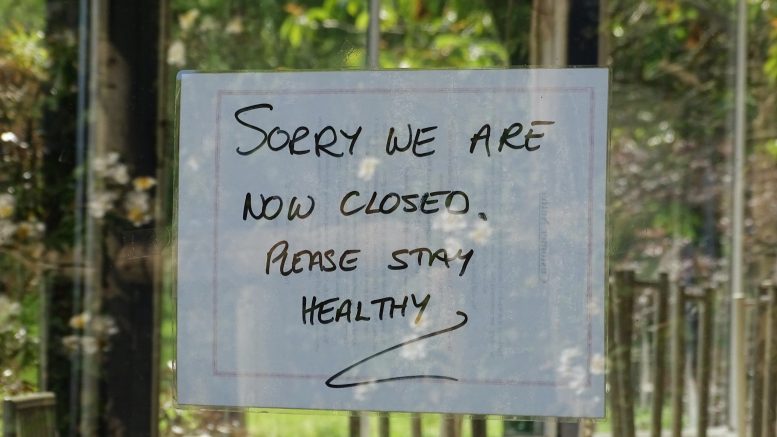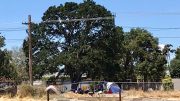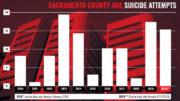Editor’s note: The deadline is fast approaching to seek city loans to survive the pandemic
City Hall is trying to make sure Sacramento’s small businesses and nonprofits get to the other side of the COVID-19 recession. And its latest offer is to home-based businesses, which are now eligible for the forgivable loans.
But time is running out to apply. The deadline is 5 p.m. Monday, July 13.
There’s a total of $15 million in loans available after the City Council on June 30 added $5 million in federal relief money to the Small Business Recovery Program, plus another $5 million for technical assistance, including marketing, data collection and digital improvements.
The council also expanded the loan program to cover home-based businesses with one or two employees (beyond just day cares), which can receive $2,500. Businesses and nonprofits with five or fewer full-time employees can get $5,000 and those with six to 25 workers can receive as much as $25,000.
Importantly—especially given the renewed debate over economic justice for Black communities—the council has directed that 75% of the money go to businesses in disadvantaged neighborhoods. “We have carefully crafted the program using an equity lens so that the bulk of the resources will go to businesses in neighborhoods that need help the most,” Mayor Darrell Steinberg said in a statement.
And to make sure the smallest operations don’t get left out, the city has a goal that 25% of the money goes to businesses with fewer than five employees.
To be eligible, a business or nonprofit must have been in operation for at least one year as of March 1, 2020; must have had 25 or fewer full-time workers during an average week in 2019; and must have projected revenues of less than $3 million in 2020.
Also, the applicant must be current on city bills, comply with city anti-discrimination policies and city and state employment laws and must show financial hardship from the pandemic. And it cannot have received help already from the city.
The loans will be forgiven after one year if the business meets at least two of three requirements—that it stays open, keeps 75% of jobs it had in March and completes ten hours of technical training. Businesses that fall short will be required to repay the loan with no interest—$100 a month for every $5,000 borrowed. For the maximum $25,000 loan, that would be $500 a month.
This round of loans is far larger than the first round, when the demand far exceeded what was available. In early April, 101 small businesses received zero-interest loans of between $5,000 and $25,000 from the city’s $1 million COVID-19 economic relief fund.
The process is also different this time. After feedback and staff evaluation, there was more community outreach and a longer application period. Those businesses that meet all requirements will go into a random drawing, and the money will go out in August. The recipients in the first round were chosen on a first-come, first-served basis from among 1,402 completed applications.
“The city is doing what it can to help small businesses. For some, it is life and death for their business. We appreciate it.”
Rob Archie, founder of Pangaea Bier Cafe
Rob Archie, founder of Pangaea Bier Cafe on Franklin Boulevard, was one of the lucky ones in the first round. He said the $13,000 city loan wasn’t “make or break” for his 12-year-old business, but “everything counts.”
“The city is doing what it can to help small businesses,” he said. “For some, it is life and death for their business. We appreciate it.”
The cafe stayed open for takeout service, then reopened for dine-in for about a month after county public health officials allowed indoor operations again in late May.
Now, it is closing until July 17 to give the staff some time off and to add more outdoor seating. The plan is to put up a tent between the cafe and Gunther’s Ice Cream since it appears airflow, social distancing and masks are how to make dining the safest for customers, Archie said.
“It’s day by day now,” he said.
As I wrote just after the coronavirus shutdown started in March: “Post-pandemic, it would be a shame if Sacramento has even more cookie-cutter national chains, but far fewer locally grown, one-of-a-kind small businesses that help give the city its charm and character.”
To stay afloat, some small businesses also received loans from the federal Paycheck Protection Program. Then, as Sacramento County’s stay-at-home order was loosened on May 22 and again on June 12 and 19 and more businesses were allowed to reopen, it appeared that small businesses might have weathered the worst of the pandemic.
But COVID-19 cases are spiking again and many reopenings have reversed, with bars closed since June 29 and restaurants again limited to outdoor seating as of July 2.
So even more small businesses may need the lifeline from the city. The $15 million may seem like a lot, but it’s possible that City Hall will have to do even more.






Be the first to comment on "Lifeline for small business"